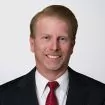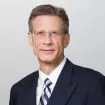Nathan Adams IV is a Partner in Holland & Knights Tallahassee office and Jerome W. Hoffman is a partner in both the Jacksonville and Tallahassee office
HIGHLIGHTS:
- The federal court system and 36 states have adopted the so-called Daubert standard in place of the Frye standard when it comes to qualifying expert witnesses under the rules of evidence. In 2013, the Florida Legislature amended the Florida Evidence Code to adopt the Daubert standard.
- The Florida Supreme Court, by a 4-2 vote on Feb. 16, 2017, declined to adopt as a rule the legislative changes "to the extent that they are procedural" due to "grave constitutional concerns" about the Daubert standard.
- The result is that we are likely to see more verdicts in Florida state courts based on non-verifiable and scientifically unreliable opinions than in most of the rest of the country.
The federal court system and 36 states have adopted the so-called Daubert standard in place of the Frye standard when it comes to qualifying expert witnesses under the rules of evidence. In 2013, the Florida Legislature amended the Florida Evidence Code to adopt the Daubert standard. Specifically, Florida Statute 90.702 allows expert testimony about scientific, technical or other specialized knowledge only if "(1) the testimony is based upon sufficient facts or data; (2) the testimony is the product of reliable principles and methods; and (3) the witness has applied the principles and methods reliably to the facts of the case."1 Florida Statute 90.704 permits disclosure to the jury of otherwise inadmissible facts or data relied upon by an expert only if "the court determines that their probative value in assisting the jury to evaluate the expert's opinion substantially outweighs their prejudicial effect."2
The Florida Supreme Court, by a 4-2 vote on Feb. 16, 2017, declined to adopt as a rule the legislative changes "to the extent that they are procedural" due to "grave constitutional concerns" about the Daubert standard.3 In effect, the Florida Supreme Court accused the U.S. Supreme Court and a majority of other state courts that adopted Daubert of "undermining the right to a jury trial and denying access to the courts."4 Several federal cases hold the opposite.5 The result is that we are likely to see more verdicts in Florida state courts based on non-verifiable and scientifically unreliable opinions than in most of the rest of the country.
Prior to 2013, Florida followed the Frye standard for the admission of expert testimony. The Frye test is also referred to as the "general acceptance test," because when admitting expert testimony deduced from a scientific principle or discovery, the district court must rule that "the thing from which the deduction is made must be sufficiently established to have gained general acceptance in the particular field in which it belongs."6 Frye applies in those cases when an expert renders an opinion that is based upon new or novel scientific techniques.7 In these instances, it extends to the expert's methodology and scientific principles, but not the expert's reasoning or conclusions. Frye does not prohibit an expert's pure opinion testimony based solely on the expert's training and experience.8 This is the primary reason the legislature adopted Chapter 2013-107.9
The Daubert standard is concerned with the relevance and reliability of testimony.10 According to the U.S. Supreme Court, the Daubert standard allows trial courts "to admit a somewhat broader range of scientific testimony" (i.e., relevant and reliable novel testimony).11 But it excludes testimony, regardless of its novelty, that is irrelevant or unreliable. The relevance inquiry or, better put, "helpfulness" or "fitness" inquiry looks at whether the knowledge will assist the trier of fact to understand the evidence or determine a fact in issue. The reliability inquiry distinguishes Daubert and asks whether the testimony is based on reliable scientific theory or technique as evidenced by such factors as testing, peer review, publication, error rates and professional standards, and Frye's general acceptance standard.
The Daubert standard incorporates the advantages of Frye without its weaknesses. New or novel evidence is sometimes relevant and reliable, whereas evidence that is not new or novel is sometimes irrelevant or unreliable. Pre-amendment, Florida courts were instructed to bar new and novel evidence regardless of its reliability. Moreover, whereas Frye will not second-guess pure opinion testimony, the U.S. Supreme Court determined in Kumho Tire,12 that Daubert ensures "an expert, whether basing testimony upon professional studies or personal experience, employs in the courtroom the same level of intellectual rigor that characterizes the practice of an expert in the relevant field."
Those who defend Frye insist that it should be up to the jury to give testimony "the weight it deserves" or, in other words, to allow the jury to evaluate the factors that Daubert requires a judge to consider. But this argument contains an admission that expert testimony is persuasive. Those who want evidence to go to the jury irrespective of its relevance or reliability prefer this because they believe it may change the venirepersons' minds. White coats are impressive even when their opinions are unverified. This is precisely why proponents of Daubert believe the irrelevant or unreliable information should not go to the jury. Opponents of Daubert also claim that it is unworkable, but for more than 20 years now, Daubert has been applied in the federal courts without issue and for roughly three years in Florida.
According to the federal Rule 702 Advisory Committee, Daubert did not work a "seachange over federal evidence law." However, when an expert purports to apply principles and methods in accordance with professional standards, but reaches a conclusion that other experts would not reach, Rule 702 and Daubert enable the trial court to preclude it when the court fairly suspects that the principles and methods have not been applied faithfully. In contrast, under Frye if the principles and methods applied are not novel and new, the expert testimony is admissible even if applied in an unorthodox fashion. In Daubert, the U.S. Supreme Court gave this example of why scientific validity for one purpose is not necessarily so for another:
Based on the same type of concern, the Florida Legislature adopted Chapter 2013-107 in reaction to a decision by the Florida Supreme Court to allow pure opinion testimony linking car accident trauma to fibromyalgia.14 The underlying tests and procedures were not new or novel. The methodology was generally accepted, but the conclusions that the experts draw from them were in doubt. Florida's Fifth District Court of Appeal ruled that testimony that trauma caused the plaintiff's fibromyalgia required "an underlying scientific assumption – that trauma can cause fibromyalgia – which is not involved in pure opinion testimony cases." Scientific support for this postulate was missing. Nevertheless, the Florida Supreme Court reversed and sided with the Second District Court of Appeal,15 in concluding that the testimony was instead "'pure opinion testimony' based solely on the expert's personal experience and training" and, thus, admissible under Frye.
Empirical analysis of the effect of Daubert in comparison to Frye show that expert challenges under Frye are largely procedural (e.g., failure to designate an expert), and under Daubert tend to be substantive.16 The most common substantive grounds post-Daubert relate to qualifications, relevancy, falsifiability and reliability.17 The legislature weighed the costs and benefits of allowing this type of evidence to come before state court juries and decided against it in favor of Daubert. The Florida Supreme Court's theory, contrary to precedent, that Daubert is not merely a reasonable policy choice, but may violate the state or federal constitution cannot be tested now unless Chapter 2013-107 is in fact substantive. It is possible the theory will be challenged. Meanwhile, defendants should expect more experts in Florida state courts to offer unorthodox opinions lacking in scientific rigor.18
Footnotes
1 §1, Ch. 2013-107, Laws of Fla.
2 §2, Ch. 2013-107, Laws of Fla.
3 In re: Amendments to the Florida Evidence Code, No. SC16-181 (Fla. Feb. 16, 2017).
4 Id. at 8.
5 See Junk v. Terminix Int'l Co., 628 F. 3d 439, 450 (8th Cir. 2010); E.I. du Pont de Nemours & Co. v. Robinson, 923 S.W. 2d 549, 558 (Tex. 1995); see also Gen. Elec. Co. v. Joiner, 522 U.S. 136, 142-43 (1997).
6 Frye v. United States, 293 F. 1013, 1014 (D.C. Cir. 1923).
7 Marsh v. Valyou, 977 So. 2d 543, 547 (Fla. 2008).
8 Id. at 548.
9 Ch. 2013-107, Laws of Fla. ("[B]y amending s. 90.702, Florida Statutes, the Florida Legislature intends to prohibit in the courts of this state pure opinion testimony as provided in Marsh v. Valyou....").
10 Daubert v. Merrell Dow Pharmaceuticals, Inc., 509 U.S. 579 (1993).
11 General Elec. Co. v Joiner, 522 U.S. 136 (1997).
12 Kumho Tire Co. v. Carmichael, 526 U.S. 137 (1999).
13 Daubert, 509 U.S. at 591.
14 Marsh v. Valyou, 917 So. 2d 313, 327, 329 (Fla. 5th DCA 2005), rev'd, 977 So. 2d 543 (2007).
15 State Farm Mutual Auto. Ins. Co. v. Johnson, 880 So. 2d 721 (Fla. 2d DCA 2004).
16 See David M. Flores et al, Examining the Effects of the Daubert Trilogy on Expert Evidence Practices in Federal Civil Court: An Empirical Analysis, 34 S. Ill. U. L.J. 533, 563 (2010).
17 Id.
18 The Florida Supreme Court's decision will not have any impact on the use of the Daubert standard in federal courts.
The content of this article is intended to provide a general guide to the subject matter. Specialist advice should be sought about your specific circumstances.

